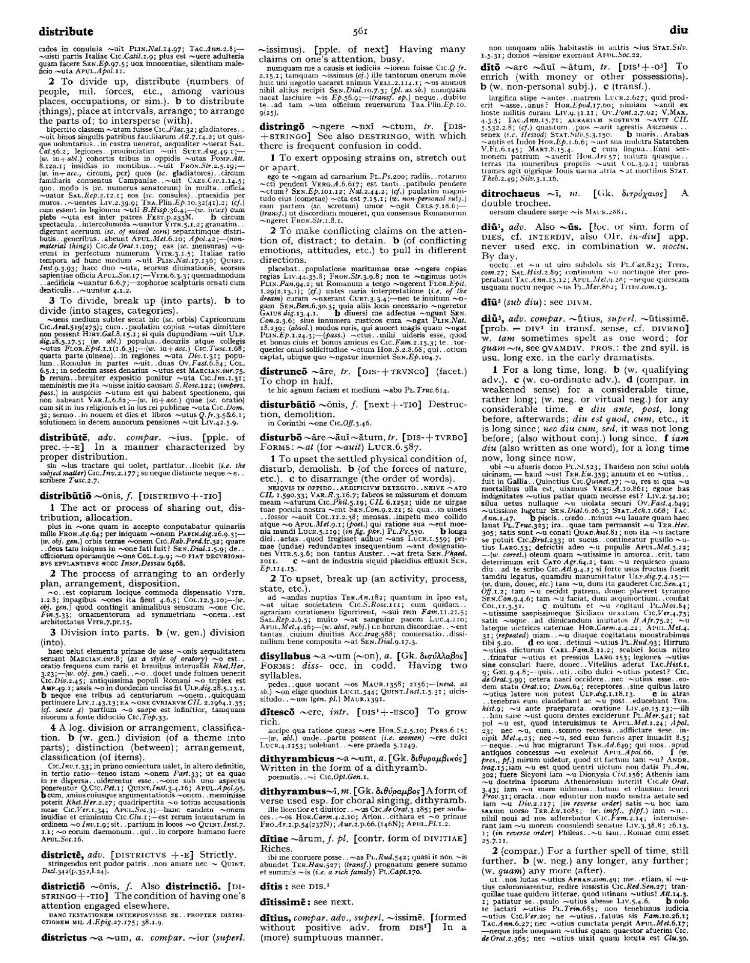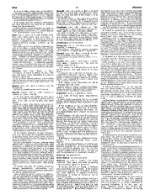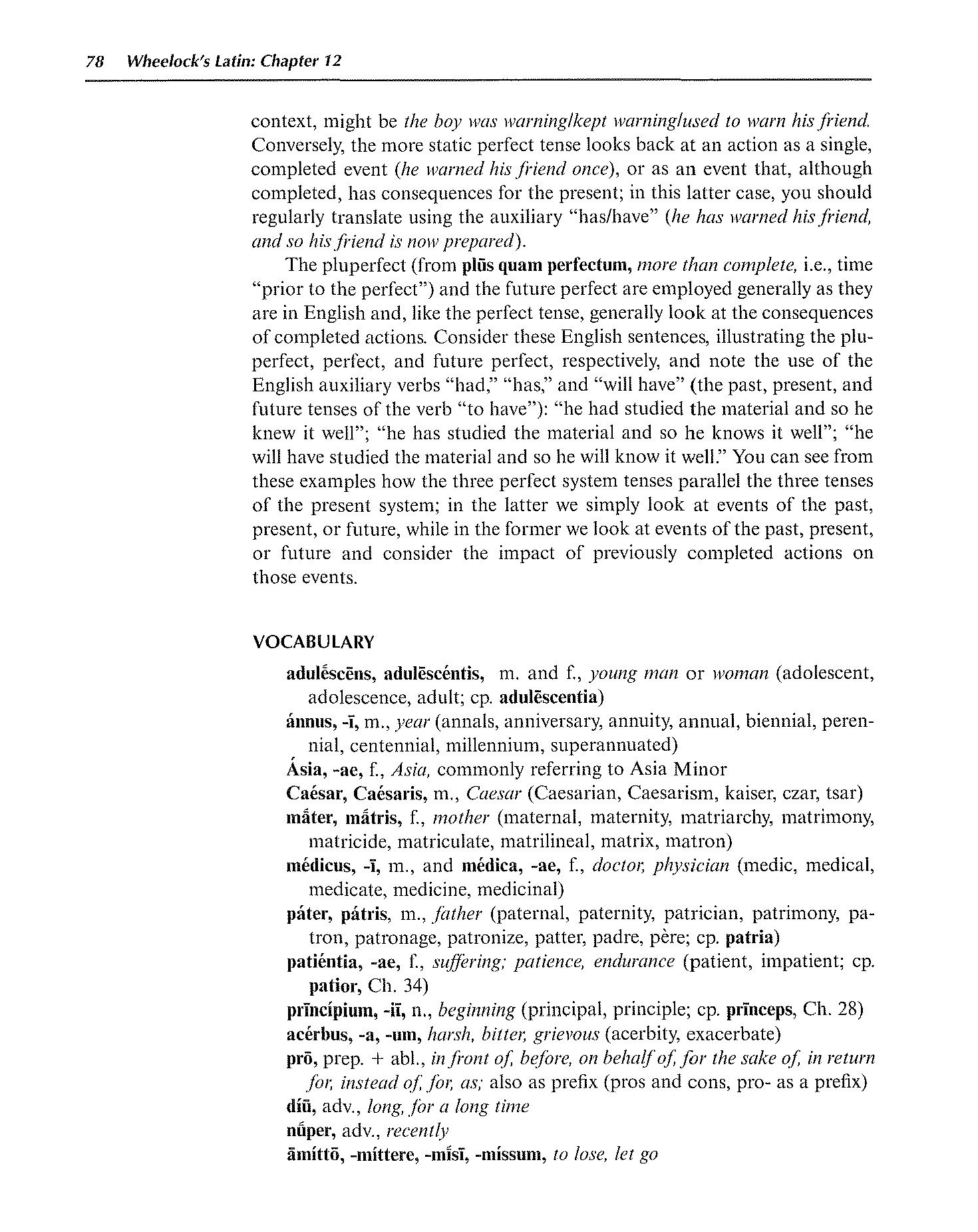
page_listing.tpl
page_subListingDetails.tpl
sub_listingDetails_style1.tpl
sub_listingDetails.title.tpl
diū for a long time
diū is a Latin Adverb that primarily means for a long time.
Definitions for diū
Wheelock's Latin
Adverb
- 1
long, for a long time
Oxford Latin Dictionary
Adverb
- 1
For a long time, long. (b) (w. qualifying adv.). (c) (w. co-ordinate adv.). (d) (compar. in weakened sense) for a considerable time, rather long; (w. neg. or virtual neg.) for any considerable time. (e) diu ante, post, long before, aftewards; diu est quod, cum, etc., it is long since; nec diu cum, sed, it was not long before; (also without conj,) long since. (f) iam diu (also written as one word), for a long time now, long since now.
- 2
(compar.) For a further spell of time, still further. (b) (w. neg.) any longer, any further; (w. quam) any more (after).
Sentences with diū
Latin to English
Diū vīxerat (vīxit; vīvet).Compare He had lived (lived; will live) a long time.
Diū neglegēris/neglegēminī (neglēctus es/neglēctī estis).Compare For a long time you (sg./pl.) will be neglected (were neglected).
Diū oppressī, sē contrā opprimentem tyrannum vertere coepērunt.Compare Long oppressed, they began to turn themselves against the oppressing tyrant.
Tyrannus arbitrātus est eōs duōs haec mala diū passūrōs esse.Compare The tyrant thought that those two men would endure these evils a long time.
Multum et diū clāmat lanius, sed Pseudolus nihil respondet.Compare The butcher shouts a lot and for a long time, but Pseudolus makes no reply.
Nemo quam bene vivat, sed quam diu, curat, cum omnibus possit contingere, ut bene vivant, ut diu, nulli.Compare Men do not care how nobly they live, but only how long, although it is within the reach of every man to live nobly, but within no man's power to live long.
Mirum videtur quod sit factum iam diu?Compare Does it seem marvelous because it was done long ago?
Data sources
Notes
- Definitions
- Frederick M. Wheelock, Wheelock's Latin, 6th ed., rev. Richard A. LaFleur (New York, NY: HarperCollins Publishers, 2005): 78.
- P. G. W. Glare, Oxford Latin Dictionary, Vols. 1-8 (Oxford: Clarendon Press, 1982): 561.
- Word frequencies
- Christopher Francese, "Latin Core Vocabulary," Dickinson College Commentaries, last modified 2014, http://dcc.dickinson.edu.
- Paul B. Diederich, The Frequency of Latin Words and Their Endings, PhD diss., (Columbia University, 1939).
- Louis Delatte, Suzanne Govaerts, Joseph Denooz, and Etienne Evrard, Dictionnaire fréquentiel et index inverse de la langue latine [Frequency Dictionary and Inverse Index of the Latin Language] (Liège, Belgium: Laboratoire d'analyse statistique des langues anciennes de l'Université de Liège [L.A.S.L.A.], 1981): 121.
Bibliography
Allen, Joseph H. Allen and Greenough's New Latin Grammar for Schools and Colleges: Founded on Comparative Grammar. Edited by James B. Greenough, George L. Kittredge, Albert A. Howard, and Benjamin L. D'Ooge. Boston, MA: Ginn & Company, 1903.
Crystal, David. A Dictionary of Linguistics and Phonetics. 6th ed. Oxford, UK: Blackwell Publishing, 2008.
Delatte, Louis, Suzanne Govaerts, Joseph Denooz, and Etienne Evrard. Dictionnaire fréquentiel et index inverse de la langue latine [Frequency Dictionary and Inverse Index of the Latin Language]. Liège, Belgium: Laboratoire d'analyse statistique des langues anciennes de l'Université de Liège (L.A.S.L.A.), 1981.
Diederich, Paul B. The Frequency of Latin Words and Their Endings. PhD diss., Columbia University, 1939.
Francese, Christopher. "Latin Core Vocabulary." Dickinson College Commentaries. Last modified 2014. http://dcc.dickinson.edu/latin-vocabulary-list.
Gildersleeve, Basil L., and Gonzales Lodge. Gildersleeve's Latin Grammar: Third Edition, Revised, and Enlarged. 3rd ed. London, England: Macmillan and Co., 1903.
Glare, Peter G.W. Oxford Latin Dictionary. Vols. 1-8. Oxford, England: Clarendon Press, 1982.
Krüger, Bernd. "Latin Conjugation Tables." Cactus2000. Accessed May 5, 2023. https://latin.cactus2000.de/index.en.php.
Pierson, Nick. "Sound of Text." Accessed October 26, 2019. https://soundoftext.com.
Wheelock, Frederick M. Wheelock's Latin. 6th ed. Revised by Richard A. LaFleur. New York, NY: HarperCollins Publishers, 2005.
Wiktionary Contributors. "Victionarium." Wikimedia Foundation, Inc. Updated March 18, 2019. https://la.wiktionary.org/wiki/Victionarium:Pagina_prima.
Citation
Chicago (17th ed.)
Allo Contributors. "diū (adv.) - Latin Word Definition." Allo Latin Dictionary. Last modified . Accessed February 19, 2026. http://ancientlanguages.org/latin/dictionary/diu.
Entry created on . Last updated on .








